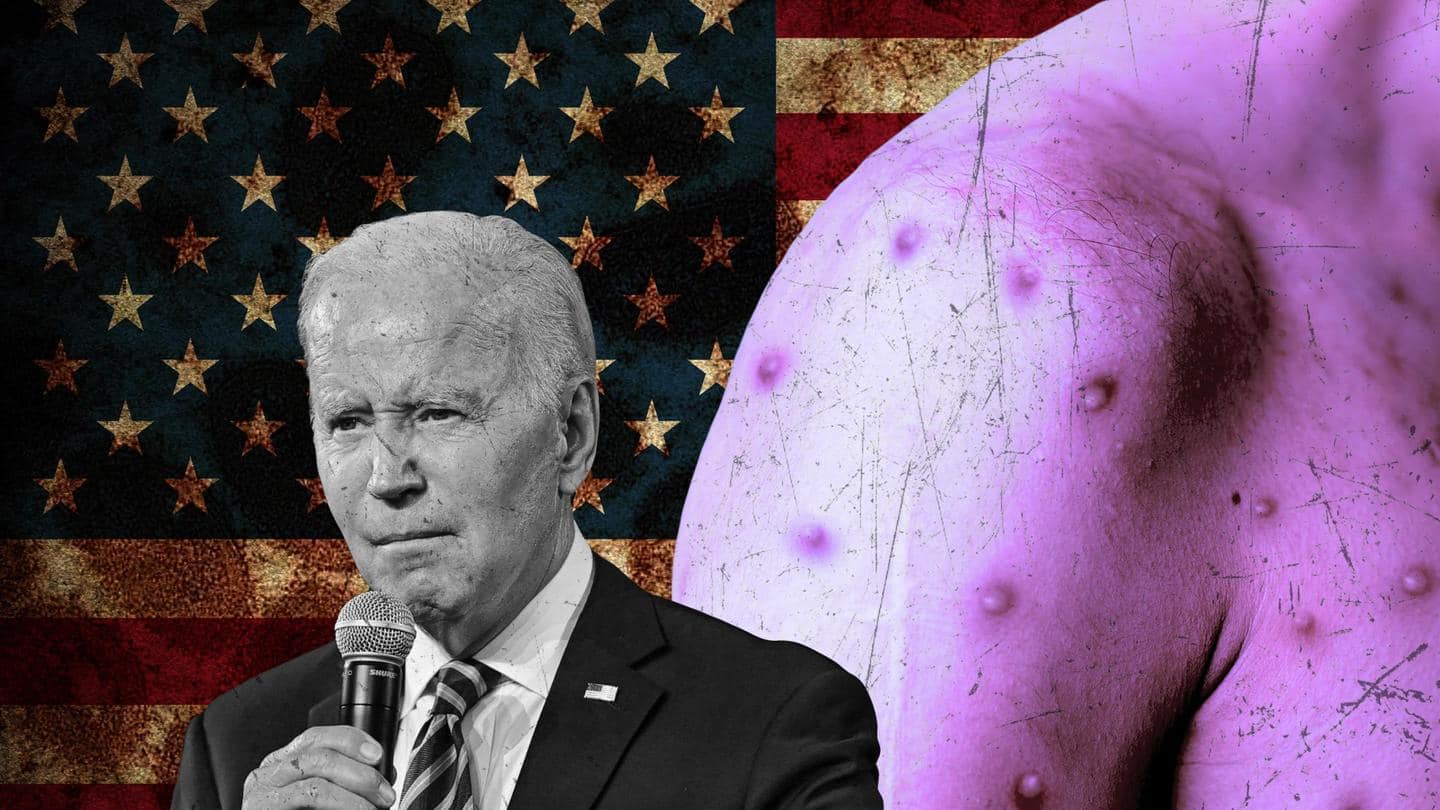
Monkeypox outbreak: US declares public health emergency amid rising cases
What's the story
The United States (US) authorities announced on Thursday that monkeypox has been designated a public health emergency in the country.
The decision is anticipated to release resources to combat the disease.
The US government's outbreak response drew criticism in the past.
On Wednesday, the number of cases in the country surpassed 6,600, with nearly all of them involving males, who had sex with men.
Context
Why does this story matter?
With the World Health Organization (WHO) declaring monkeypox a "global public health emergency," many are wondering if it will be the next epidemic, the world should worry about.
The arrival of monkeypox has prompted health authorities in India to install surveillance systems and impose a high alert in several states.
The country has reported nine confirmed cases of viral infection so far.
Statement
Official statement over the development
"We're prepared to take our response to the next level in addressing this virus, and we urge every American to take monkeypox seriously," stated Xavier Becerra, the health and human services secretary.
The declaration would enhance the accessibility of information on monkeypox infections, which is important for the response, said Rochelle Walensky, US Centers for Disease Control and Prevention's director, who spoke alongside Bacerra.
USA
US has the highest number of monkeypox cases worldwide
The disease first swept through Europe before making its way to the United States, which currently has the highest cases worldwide.
Vaccines and medications have been in short supply, leaving the disease to be managed by traditionally under-funded sexual health clinics.
Governments are employing vaccines and remedies that were originally authorized for smallpox, but now work for monkeypox as well.
Information
WHO declared monkeypox a public health emergency on July 23
Monkeypox was labeled a "public health emergency of international concern" by the World Health Organization. Last month's WHO proclamation aimed to mobilize a coordinated global response and release funding to cooperate on vaccinations and treatments to combat monkeypox together.
FDA
US plans to vaccinate 1.6 million high-risk population
The US government has delivered 600,000 doses of Bavarian Nordic's Jynneos vaccination and 14,000 of Siga Technologies' TPOXX treatment, officials stated.
Walensky said the government plans to vaccinate 1.6 million high-risk population.
The Food and Drug Administration (FDA) stated the government was considering freeing up additional Jynneos vaccine doses by enabling doctors to draw 5 doses from each vial instead of a single dose.
Context
California, Illinois, New York already under monkeypox emergency
Following the pronouncements of emergencies by California, Illinois, and New York, US President Joe Biden this month nominated two federal officials to oversee his administration's response to monkeypox.
According to the WHO, the disease produces moderate symptoms including fever, pains, and pus-filled skin lesions, and most people recover within two to four weeks.
It's reportedly rarely fatal and spreads through close personal contact.
Fact
95% monkeypox infections spread through sexual activity: Study
According to a recent study published in the New England Journal of Medicine, 98% of affected patients surveyed were homosexual or bisexual males, and 95% of infections were spread through sexual activity.
Monkeypox, as per the experts, creates a blistering rash and is spread mostly through intimate physical contact, and the disease has not yet been classified as a sexually transmitted infection (STI).
Quote
LGBTQ community leaders being approached
Biden's senior medical adviser, Anthony Fauci, told Reuters on Thursday he thought it was vital to involve leaders from the LGBTQ community in efforts to contain the outbreak, but he warned against stigmatizing their lifestyle.
"Engagement of the community has always proven to be successful," Fauci reportedly stated.
The WHO has similarly advised against assuming that the monkeypox disease can just harm one group.